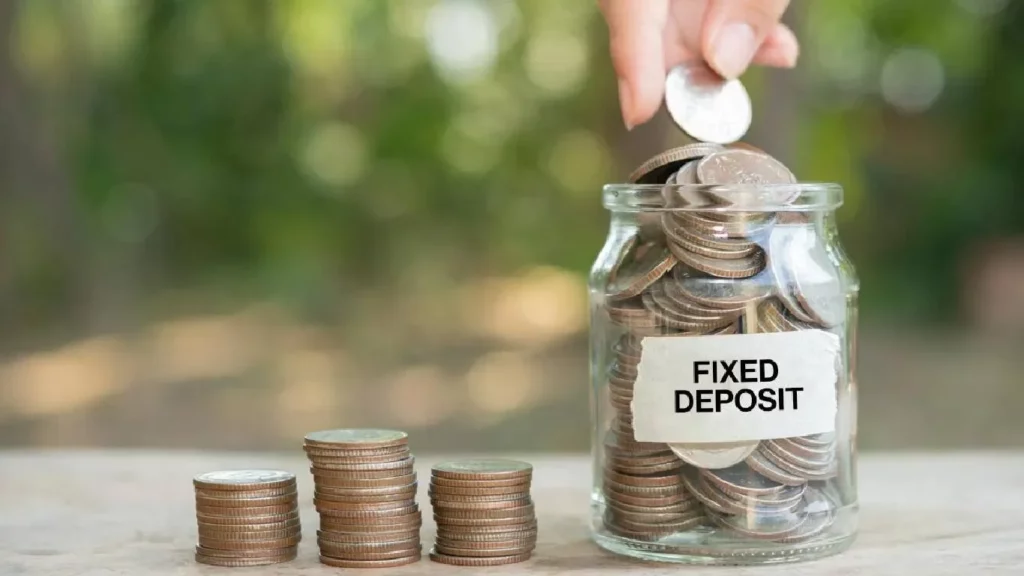
What is Short Term Investments?
The goal of short-term investments is to generate significant returns in a short amount of time—a year or even a few months—through investment. These plans are primarily intended to cover anticipated expenses in the near future.
Investors who lean more toward short-term investments typically don’t have much interest in waiting years to see their money compound exponentially. Rather, they seek expeditious and efficacious outcomes. Short-term investment plans save the day in this situation.
As opposed to long-term investment options, which typically yield massive results, short-term investment plans allow one to expect the maximum returns necessary to meet their financial objectives. Because short-term investment plans carry fewer risks, experienced investors frequently place them highly on their popularity charts.
Best Short Term Investments Options
Let’s take a look at the Best short term investment options to invest in 2023.
- Recurring Deposits
- Money Market Account
- Debt Instrument
- Bank Fixed Deposits
- Post-office Time Deposits
- Large Cap Mutual Funds
1.Recurring Deposits

- Tenure: An RD account can be opened for as little as six months or for as many as ten years in increments of three months.
- Liquidity: A recurring deposit plan typically has a one-month minimum lock-in period. Only the principal amount is paid to depositors in the event that the account is closed early within a month; interest is not paid.
- Returns: Recurring deposit accounts, which are among the greatest short-term investment plans, offer the same interest rate as bank savings accounts. At the moment, the interest rate that applies to loans with terms longer than 12 months is 6.5% annually. As of the first deposition date, the interest will be applicable. Before choosing an investment, it is advised to analyze the FD returns using the FD calculator online tool.
- Taxation: The interest accumulated on the invested amount is included in income and subject to tax at the individual’s income slab rate. If the interest earned on these short-term investment plans exceeds Rs. 10,000, TDS is withheld.
2.Money Market Account

Often referred to as liquid funds, money market accounts are a fantastic short-term investment choice because they offer you both respectable returns and capital security. These have no lock-in period, have a maximum maturity date of 91 days, and are the least risky and most liquid mutual funds available.
- Tenure: A money market account may be opened for a period of time shorter than thirteen months.
- Liquidity: This option for short-term investment plans has a high liquidity and is quickly redeemable.
- Returns: Money market fund returns are neither fixed nor guaranteed. MMF currently provides an annual interest rate of 7%. Investors should first align their investment horizon with the maturities of the other investment securities in these funds in order to optimize their returns.
- Taxation: Under this short-term investment plan, the individual’s income is increased by the profit earned on the invested amount, and they are subject to the appropriate taxes. Nevertheless, 20% post-indexation tax is applied to the profit on an investment held for longer than 36 months.
3.Debt Instrument

Another excellent short-term investment strategy is debt instruments, particularly for those who are risk averse. Debt mutual funds are a good option if you want to invest without worrying about market volatility and still secure capital with good returns. With returns as high as 10.5%, this is a wise option for savings with a short duration.
- Tenure: There are three categories for the tenure of debt funds under short-term investment plans.
- Investments in money market and debt securities with a maximum maturity of 91 days are made through the liquid fund option.
- Ultra-short-duration fund: In this fund option, funds are invested for a period of three to six months in money market and debt instruments.
- Low duration fund: In this fund option, funds are invested for a term of six to twelve months in money market and debt instruments.
- Liquidity: High investment liquidity is offered by liquid debt funds. In comparison to a savings account, the liquid debt fund offers a maximum maturity of 91 days and yields higher returns.
- Returns: Due to its low risk and consistent return structure, debt funds are regarded as some of the greatest short-term investment options. Debt funds currently offer investment interest rates ranging from 7 to 9 percent.
- Taxation: Debt funds are subject to capital gain tax. For a three-year period, capital gains made on a fund are subject to the short-term capital gain tax (STCG). Capital gains made on a fund that is held for longer than three years are subject to long-term capital gain tax.
4.Bank Fixed Deposits

Another name for fixed deposits is short-term investments, which are savings accounts that allow a person to deposit a lump sum of money into a bank for a predetermined amount of time. One of the safest options for short-term investments is the fixed deposit scheme, which offers guaranteed returns and a fixed fixed rate of return on investment.
- Tenure: A fixed deposit account has a tenure of seven days, fourteen days, thirty days, forty-five days, or up to ten years, making it one of the safest short-term investment plans. Upon maturity, deposits can be renewed and reinvested.
- Liquidity: The fixed deposit plan controls reinvestment risk in addition to providing excellent liquidity on investments.
- Returns: At the conclusion of the fund term, returns on investments made into a fixed deposit account are guaranteed at a fixed interest rate. For investments lasting longer than a year, fixed deposits currently offer interest rates between 8% and 9%. Even in the event of market volatility, the interest rate on fixed deposit plans remains constant.
- Taxation: FD is subject to a high income tax rate of up to 30%, depending on the individual’s income head. The accumulated interest is subject to the tax as well. Investors cannot deduct any taxes from fixed deposits.
5.Post-Office Time Deposits

Known by another name, post office fixed deposits, are among the safest and best options for short-term investments with guaranteed returns for investors. India Post runs the program, which is highly well-liked in the country’s rural and isolated areas.
- Tenure: A post office time deposit plan may be opened for one, two, three, or five years.
- Liquidity: Under the post office scheme, interest is paid annually on the deposited amount. Premature withdrawals are not permitted under the post office scheme prior to the 6-month mark.
- Returns: The following post office fd return rate is available for post office time deposit accounts.
- Taxation: The interest earned on the deposited amount is included in the individual’s income and is subject to taxation based on the individual’s income tax slab rate.
6.Large Cap Mutual Funds

In order to achieve significant growth in a shorter amount of time, large-cap mutual funds are short-term investment plans in which investments are made selectively in the stocks of large business organizations. Within a year to three years of investment tenure, these fantastic small investment plans can provide you with swift and astute returns.
- Tenure: A large-cap mutual fund investment may be made for a period of three to five years.
- Liquidity: Investors can expect both high returns on their investments and high liquidity from the large-cap mutual fund scheme.
- Returns: Large-cap mutual fund investments are a safe short-term investment option with low risk and a high return of 8%–13%.
- Taxation: Debt funds are subject to capital gain tax. For a three-year period, capital gains made on a fund are subject to the short-term capital gain tax (STCG). Capital gains made on a fund that is held for longer than three years are subject to long-term capital gain tax.
How Short Term Investments Work?
On their balance sheet, short-term investment accounts are present in companies with strong cash flow. This is due to the fact that businesses with substantial cash reserves can afford to reinvest any excess funds in stocks, bonds, or other securities, such as treasury bills, to generate higher returns on investment that are comparable to those of savings accounts. Gaining strong returns on investment while protecting capital is the main goal of short-term investment plans for businesses and investors alike.
Requirements for Short Term Investments
If an investment meets these two fundamental criteria, it can be classified as a short-term investment. First of all, it offers liquidity. Second, the investment ought to be made for a meager 12-month duration. Another type of bond that falls into this category is a short-term investment plan; these bonds have a set maturity date. Marketable equity securities are easily traded as liquid funds and are regarded as short-term investments. Plans for short-term investments have a defined maturity date of less than a year.
FOR MORE INFO CLICK THIS SITE:https://learningsharks.in/
FOLLOW OUR PAGE:https://www.instagram.com/learningsharks/?hl=en
